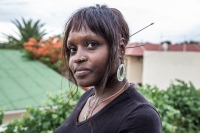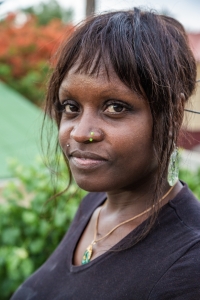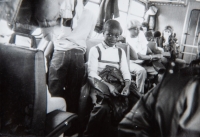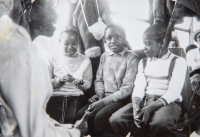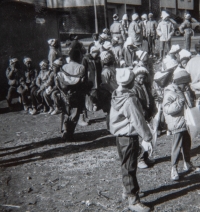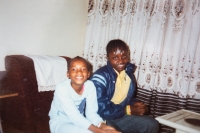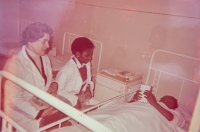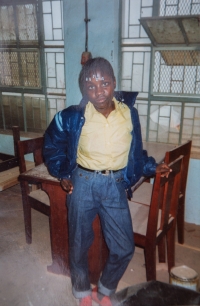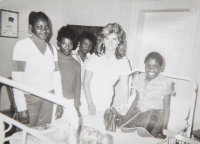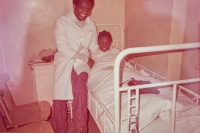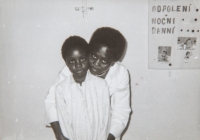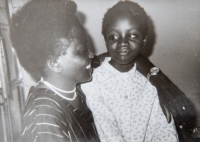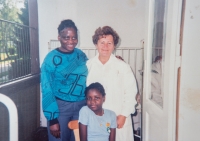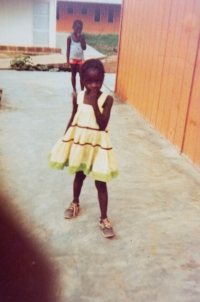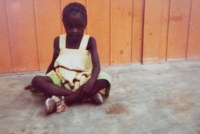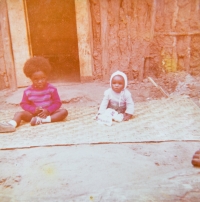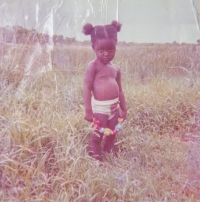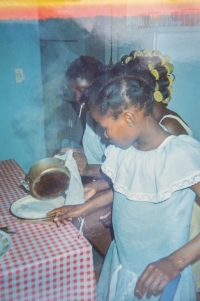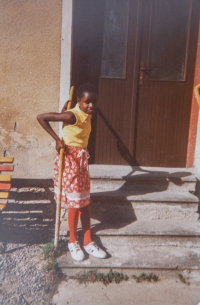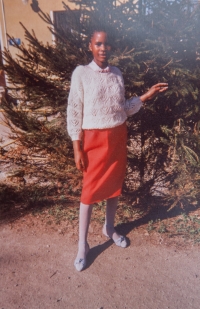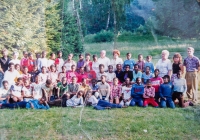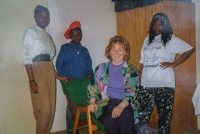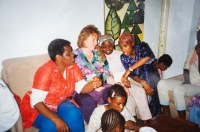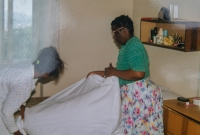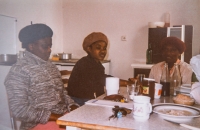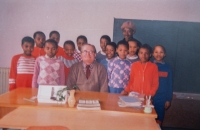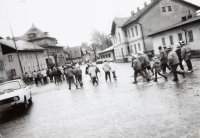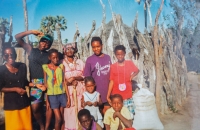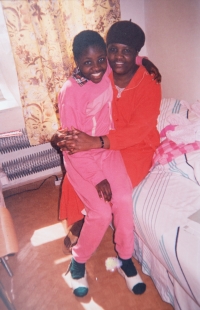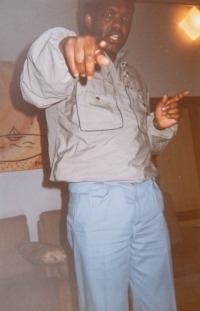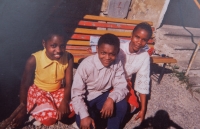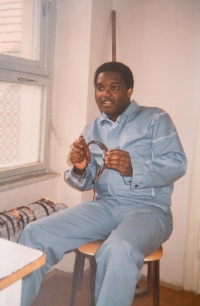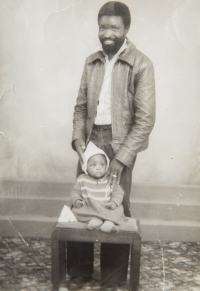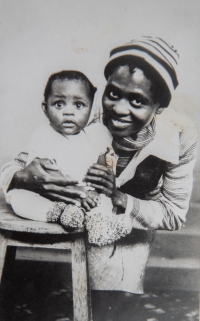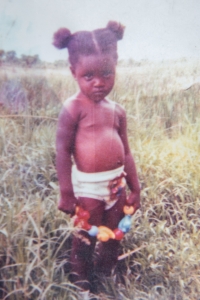We were trained to become soldiers when we grow up. Educated soldiers though.
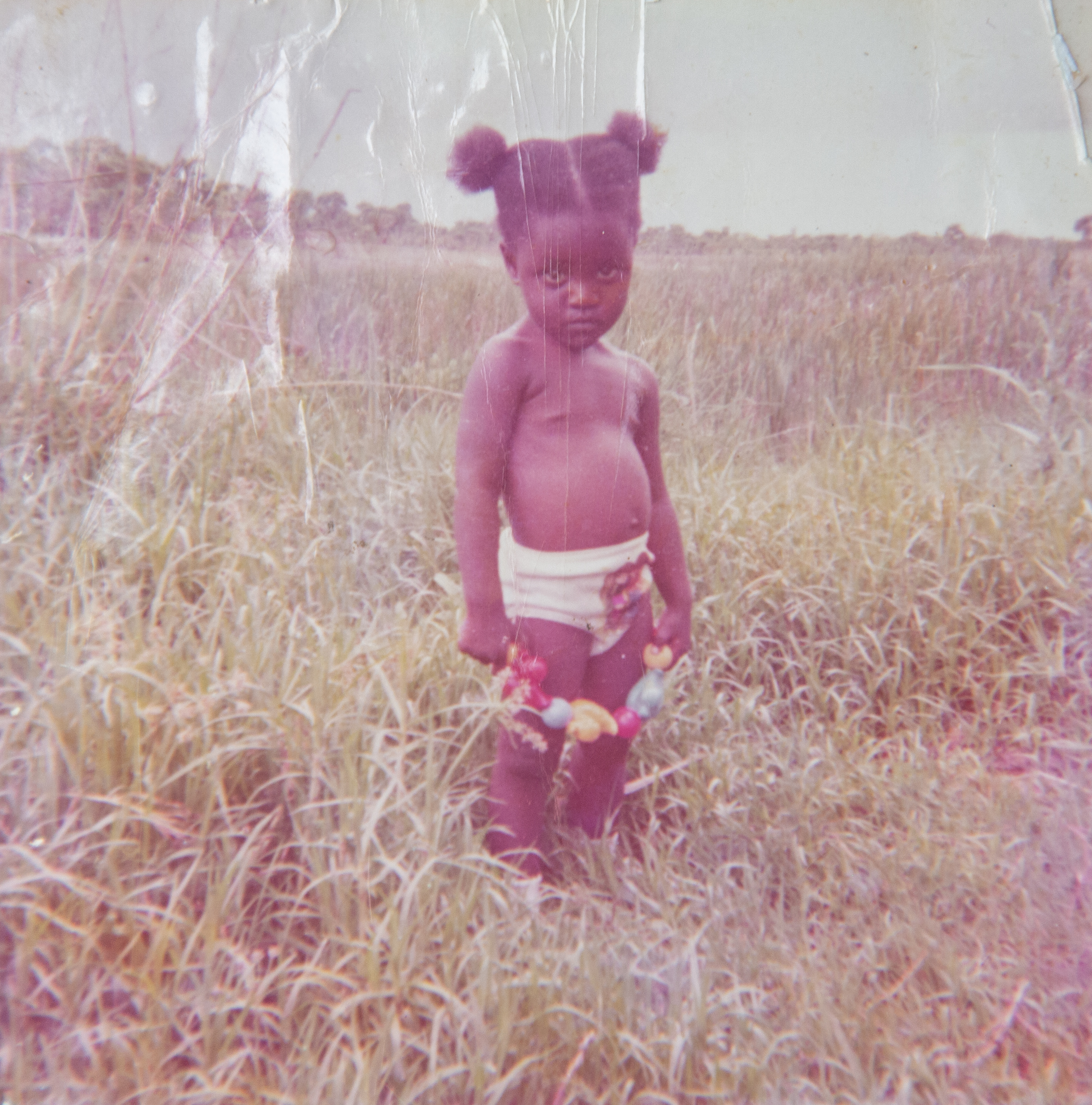
Download image
Oye Katuta was born on 10 September 1978 in the Nyango camp for Namibian refugees in Zambia; she later lived in an exile camp in Angola. She grew up without her parents who were the officials of Namibia’s revolutionary movement, SWAPO. Along with 55 other children, she flew to Czechoslovakia in 1985 and stayed in Bartošovice near Nový Jičín as part of international help to SWAPO, a Marxist movement that was fighting for the independence of Namibia with the South African Republic. The objective of the relocation was to raise the children who would become Namibian elite. Oye Katuta spent several months in a hospital in Slovakia due to a serious illness; her mother who was studying air traffic control in the GDR visited her there. The group of Namibian children were relocated to the former spa resort in Prachatice in 1988. Oye Katuta did not rejoin the group until in Prachatice. In 1991, she was repatriated to Namibia with her group as well as another group of Namibian children from Považská Bystrica. Having returned, she spent several months in a Namibian boarding school in the city of Usakos intended for the returning children to reintegrate into the Namibian society. After that, she lived with her family in the capital city of Windhoek where she completed a high school and passed school-leaving exams. While still a student, she started building a successful acting and singing career, regularly performing in various theatre shows including in the National Theatre in Windhoek. She returned to the Czech Republic in 1999 on a scholarship for returning Namibian children. She studied rehabilitation and psycho-social care for the disabled at the Faculty of Health and Social Sciences of the University of South Bohemia but did not complete the course. She returned to Namibia for good in 2003 and has had several jobs since then. She did not succeed in resuming her previous career and has been unemployed since 2022.
